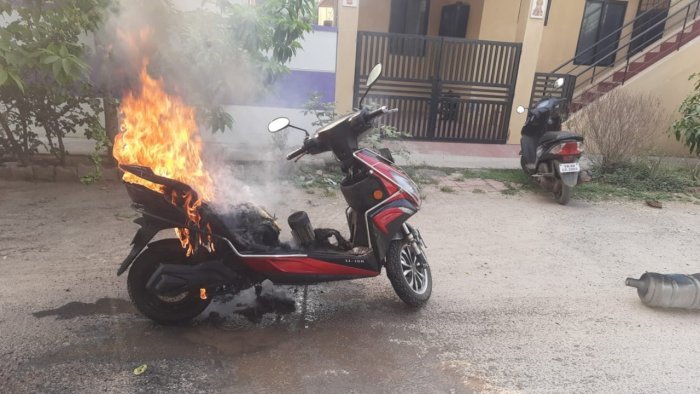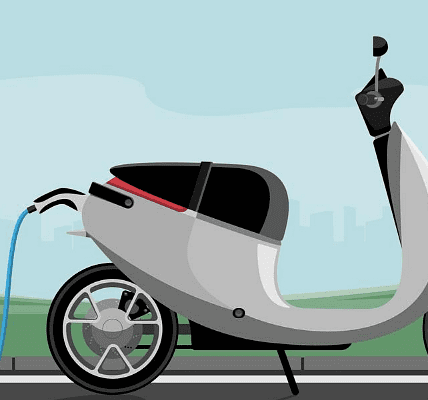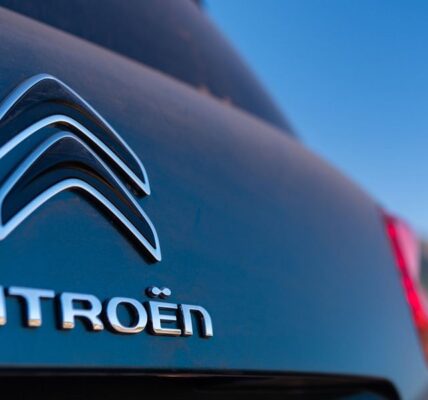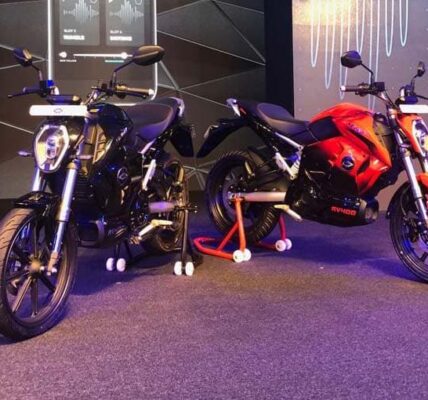Each Incident Of Electric Vehicles Catching Fire Will Be Probed; Indian EV Industry Bound To Grow Beyond Our Imagination: Transport Secretary
Amid multiple cases of electric two-wheelers catching fire, Road Transport and Highways Secretary Giridhar Aramane on Sunday said every incident will be probed and asserted that the Indian EV industry is bound to prosper and grow beyond ‘our imagination’.
Aramane further said the Ministry of Road, Transport and Highways (MoRTH) has achieved an overall asset monetization value of about Rs 21,000 crore in FY22 as part of the Centre’s National Monetisation Pipeline.
”Every incident (of electric vehicles catching fire) will be probed into,” he told PTI in an interview.
Recently, there have been multiple incidents of electric vehicles (EVs) catching fire and resulting in deaths and severe injuries to people.
Asked if the spate of high profile battery fires is undermining India’s bid to become a leader in EVs, Aramane said not necessarily, if the manufacturers quickly establish necessary functional safety protocols, quality control, and quality assurance systems.
”The Indian EV industry is bound to prosper and grow beyond our imagination,” he asserted.
Aramane said an expert panel that has been formed to enquire into the matter has not submitted its report.
”All the problems and the procurement, design, management, operations, manufacturing of the batteries and electric vehicles have to be examined,” he said, adding that appropriate recommendations will be given.
Recently, Road Transport and Highways Minister Nitin Gadkari, who is known for his frank views, had said the companies found negligent will be penalized and a recall of all defective vehicles will be ordered after the expert panel submits its report. The government had ordered a probe last month after an e-scooter launched by ride-hailing operator Ola’s electric mobility arm caught fire in Pune.
The Centre for Fire Explosive and Environment Safety (CFEES) had been asked to probe the circumstances that led to the incident and also suggest remedial measures, according to the road transport ministry. The ministry had asked CFEES to share the findings along with its suggestions on measures to prevent such incidents.
So far, three Pure EVs, one Ola, two Okinawa, and 20 Jitendra EV scooters have caught fire. To a question on asset monetization, Aramane said: ”Last year (2021-22 fiscal), we did more than Rs 15,000 crore of asset monetization, we also got around Rs 5,000 crore through securitization of toll. ”So, overall around Rs 20,000-21,000 crore was real accrued to the ministry by asset monetization,” he added.
In August 2021, Finance Minister Nirmala Sitharaman announced the Rs 6-lakh crore National Monetisation Pipeline (NMP) over four years to unlock value in infrastructure assets across sectors.
Asked if he is still confident of completing projects under the Phase-I of Bharatmala Pariyojana by 2022-23, the transport secretary said, ”because we started one year late, instead of 2017-18, we started in 2018-19, so it will go up to 2023-24.” The government’s flagship program for national highways, Bharatmala Pariyojana (BMP) Phase-I, was initially proposed to be completed by 2022.
The Cabinet Committee on Economic Affairs (CCEA) had in 2017 given investment approval for Phase-I of Bharatmala Pariyojana, spanning 5 years. Bharatmala Pariyojana Phase -I includes the development of about 24,800 kms of national highway network such as economic corridors, inter-corridor, and feeder roads, national corridors efficiency improvements, border, and international connectivity roads, coastal and port connectivity roads, expressways as well as 10,000 kms of roads under National Highways Development Project (NHDP).
Asked about the ministry’s plan to connect 112 aspirational districts, he said these districts need development and thus need to be connected with the employment-generating centers and manufacturing hubs. ”Several of them will be covered through the national highways which are getting developed under the Bharatmala Pariyojana and our national infrastructure pipeline.
”So, remaining also we will try to cover through the annual action plans of the ministry over the next 4-5 years,” Aramane said.







